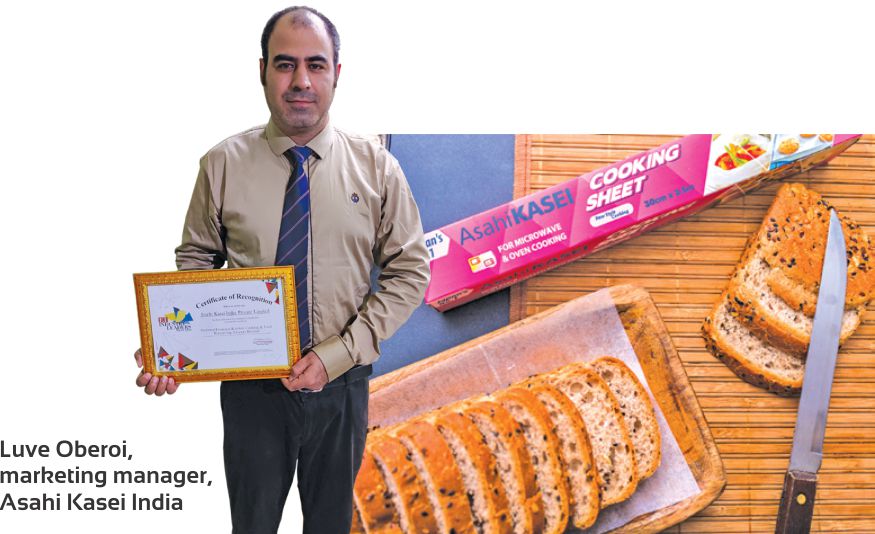Bakery Biz, July-August, 2021
In the third of a series of six articles Yusuf Patanwala tells us how many of the major Business Problems can be solved by learning and deploying some of the most enduring principles of Quality Management and Productivity

YUSUF
PATANWALA
FOUNDER
AND CEO
AUTOBAKE PRODUCTIONS
One legendary anecdote is always narrated whenever one talks about Quality and it goes like this: An American company places an order for 10,000 pieces of certain electronic components with a
Japanese manufacturer stating – “a defect rate of 0.03% would be acceptable”. The Japanese manufacturer dispatches the order of 9,997 pieces with 3 defective pieces packed in a separate box with the following note: “We do not understand why you need 3 defective pieces. However as per your requirements, we have specially produced the 3 defective pieces and dispatched them in a separate box. Hope we have been of service to you!”
This anecdote is by far the most revealing in terms of how the standards of quality vary from country to country and also from company to company. In today’s time and age, quality is a given. Every company proudly mentions “Best Quality” tag or label on their product packaging and rightly so. Achieving a certain level of quality and delivering it on a regular basis is by no means a small task. We have all seen many companies work really hard over a long period of time to achieve that particular level of quality. However, in a fast-changing environment where we always have new players entering the market with superior offerings, the main challenge is always this:
- Do we have a system and culture for continuous improvement in my company?
- Is quality a one-time task for us or a continuous one? Do we have a Team in place to lead the journey of Quality Management in our company?
- Are our suppliers our partners in this journey or are we alone?
- Is the Decision-Making process in our company – a participative one?
In this article we will see how many of the major Business Problems can be solved by learning and deploying some of the most enduring principles of Quality Management and Productivity.
Before we talk about the various Principles of Quality Management, let us first understand the definition of Quality. Broadly speaking, Quality has two different meanings:
Quality = adding new features to existing product or service = Product Enhancement
Here the company focusses on adding or improving the various features of their product or service. For example, the various value additions we offer on bread like brown bread, gluten free bread, multigrain bread, etc. This aspect of quality usually results in more sales for the company and also higher profits.
Quality = freedom from deficiencies = Process Improvement
Here the company focusses on activities related to improving the manufacturing processes and thereby eliminating wastes and defects in their products or services. For example, a company may reengineer its process of making bread which leads to better product volume, increased shelf life, better slice crumb and texture, etc. This aspect of quality usually results in reduction of costs and improvement in profitability.
Please refer Table 1.0 to understand the two different meanings of Quality. Whenever we talk of Quality it is important to understand the major difference between the two as pointed above. When one is striving for Quality in Product Features it is very likely to be associated with high costs while the Quality related to Freedom from Defects means reduction in costs.
 What is important to note is that we need a balance between Product Enhancement and Process Improvement in our bakeries. Let us have a look at various scenarios of what happens when each type of quality is pursued in different proportions by different organisations. Based high and low level in each, we can broadly classify bakeries into four major segments as shown in Chart 2.0. We will now discuss each one of them in more detail.
What is important to note is that we need a balance between Product Enhancement and Process Improvement in our bakeries. Let us have a look at various scenarios of what happens when each type of quality is pursued in different proportions by different organisations. Based high and low level in each, we can broadly classify bakeries into four major segments as shown in Chart 2.0. We will now discuss each one of them in more detail.
1. High on Product Enhancement but Low on Process Improvement:
Bakeries that are broadly classified in this segment are of the following nature:
- They produce and sell very premium bakery products, usually inspired by the global patisserie
- They have a small but a very loyal customer base
- They can produce and deliver customised products as per specific needs of the customer
- And finally, they keep on developing new products an simultaneously improving them.
Some of the challenges faced by such bakeries are of the following nature:
- Unable to scale up rapidly due to the highly complex nature of their products and processes
- Requirement of highly skilled labor which are always in short supply
- High lead times for delivery.
Which Quality Initiatives can be deployed to overcome the above challenges?
- Divide the complete skilled and complex task of production into a number of smaller manageable steps. Means, Simplify the Process
- Identify the high skill and low skill tasks of the process and re-allocate the work accordingly. Means, Take the Skill out of the Job and Reduce dependence on high skill labor.
 2. High on Process Improvement but Low on Product Enhancement:
2. High on Process Improvement but Low on Product Enhancement:
Bakeries that are broadly classified in this Segment are of the following nature:
- Able to build up scale and grow rapidly in the initial years
- Manufacture and supply goods to institutional buyers
- Focus is on producing a ‘standard and price-conscious’ product rather than an ‘exceptional’ product
- Their plants and machineries are highly capital intensive
- Work on very low margins.
Some of the challenges they face are of the following nature:
- Unable to develop new products rapidly
- Unable to provide a wide range of products to market.
What they can do to overcome the above challenges:
- Develop focus on the end consumer rather than just the immediate buyer which helps in gathering more insights on product development
- Develop strategic partnerships with suppliers and involve them in new product development initiatives in the organisation.
3. Low on Product Enhancement and also Low on Process Improvement:
Bakeries that are broadly classified in this Segment are of the following nature:
- Deploy a large number of low-cost manpower for manufacturing
- Produce a wide range of low-cost products and sell at very low prices
- Have a sizeable amount of sales in the mid / low end of the market
- Operate their bakeries through their trusted lieutenants rather than any professional staff.
Some of the challenges faced by such companies are of the following nature:
- They find it very difficult to introduce or implement any new quality initiative in their bakeries
- Have little or no control in producing products with consistently uniform quality
- Have little or no control in ensuring timely product deliveries
- There is little or no involvement of workers in any new initiative of the company
- Unable to transition their bakery from one particular level of performance to a higher level.
What can such companies do to overcome the above challenges?
- Start by building a very good plant infrastructure
- Organise the plant and all production processes in a systematic manner
- Gradually start inculcating a high level of discipline amongst the manpower
- Introduce training and improve learning and skill development of its people
- Organise visits to other bakery plants and learn and benchmark themselves accordingly
- Build a strong base now to enable future developments.
4. High on Product Enhancement and High on Process Improvement
Bakeries that are broadly classified in this Segment are of the following nature:
- Professionally operated with a very good brand equity in the market
- Sizeable amount of investments are made in the factory, on the outlets, building systems and processes and developing people
- Produce an exclusive range of products for an exclusive market
- Sale is through exclusive outlets, online channels and food malls, etc.
Some of the kind of challenges such bakeries face are of the following nature:
- Developing products for a more inclusive rather than exclusive range of customers
- Unable to invest in automation when volumes grow due to very wide range of product categories
- High level of dependence on skilled manpower
- Very difficult to consistently maintain the same level of quality in all variety of products
- Owner involvement is very high in all aspects of the business
- Very difficult to replicate the business model from city to city
How can we overcome the above challenges?
- Identify the top 20 per cent of the products that contribute the maximum to business and focus on them to minimise costs, increase sales and maximise profits
- If possible, develop standard recipes of various products and supply the premixes or semi-finished products from the central kitchen in packed and frozen form to the outlets or other kitchens
- Take more risks, innovate more in how goods are produced, packed, stored and distributed by making use of the latest technologies to achieve a good level of leadership in this area.
 From the above discussion, I have tried make a brief attempt to cover the 7 Principles of Quality Management that are depicted in the Chart 3.0
From the above discussion, I have tried make a brief attempt to cover the 7 Principles of Quality Management that are depicted in the Chart 3.0
I hope this article is useful in understanding where we all stand in our quest for Quality and what we can do to move to the next level. I will end this article with a beautiful quote which I like very much and will discuss the same in our next article on various case studies and best practices in the industry.
“The man who comes up with a means for doing or producing anything better, faster or more economically has his future and his fortune at his fingertips”












